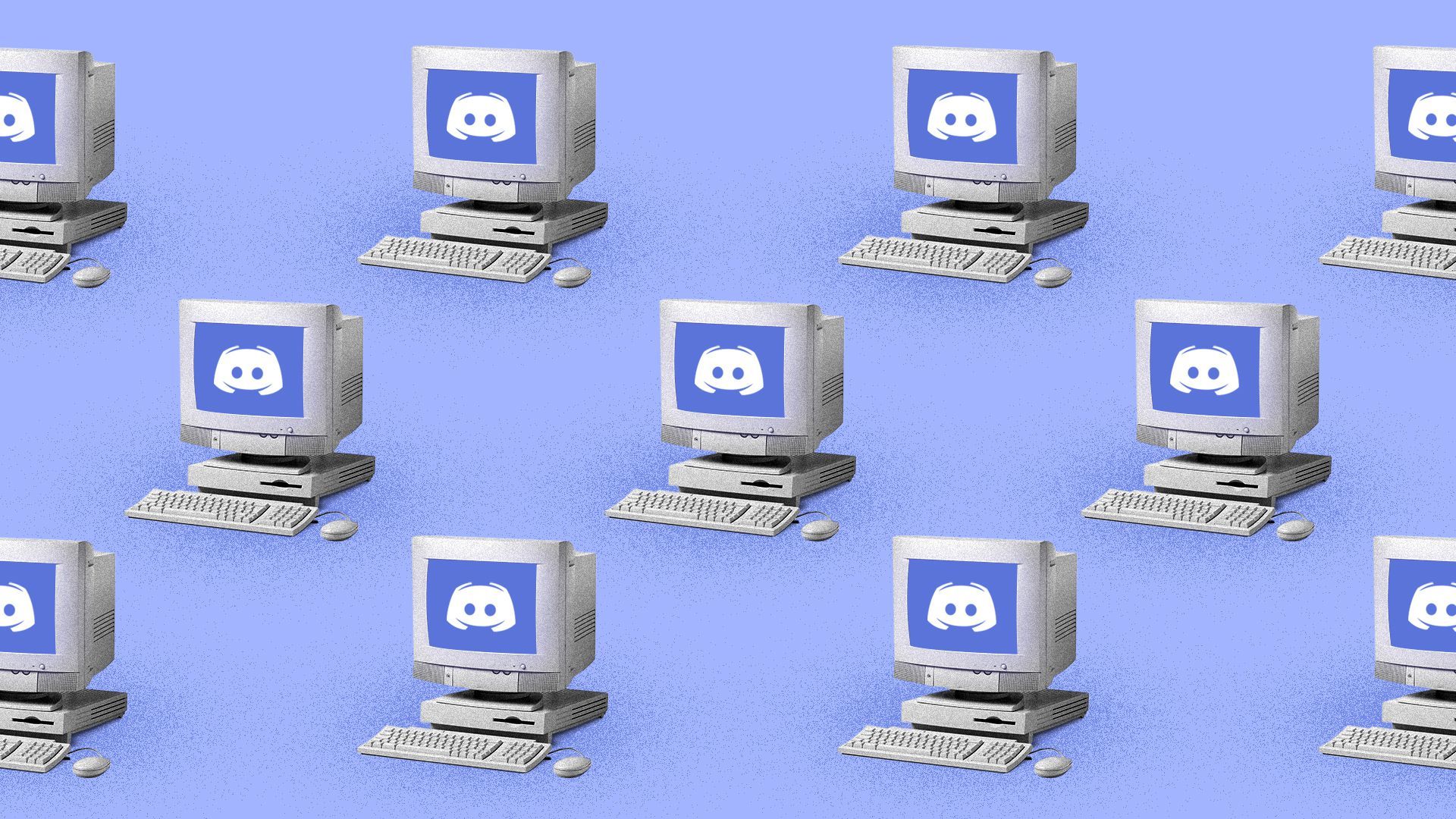Discord looks to grow beyond its gaming roots
Add Axios as your preferred source to
see more of our stories on Google.

Illustration: Aïda Amer/Axios
Discord began in 2015 as a way for gamers to talk to one another before, during, and after play. Now, the chat company is pursuing a far broader vision: to be the Slack for your non-work life.
Why it matters: In the age of COVID-19, more than ever before, people need the online equivalent of social spaces like bars, restaurants and stages.
How it works:
- Discord allows people to create their own online community space, to set and enforce rules and decide whether to remain invite-only or open it to the public.
- Users can share messages in various channels, chat privately and have group discussions. More recently, the company has added group video chat.
- Discord calls each community's space a "server," but it's not a server in the sense of a separate computer controlled by the user. Users can run servers without needing system-administrator knowhow.
- This arrangement has pros and cons. It means Discord controls the data and is responsible for complying with law enforcement. But it also means the service can enforce its own code of conduct, handling trust, safety and security.
What they're saying: "We view it as mostly a benefit," CEO Jason Citron told Axios. "It gives us the ability to ensure that Discord is a safe place to talk."
Flashback: When the site realized after the 2017 Charlottesville rally that white supremacists were using the chat platform to organize, Discord acted quickly and publicly, Citron said. "We wanted to make clear Discord would be a hostile place for extremist behavior."
The big picture: Citron said Discord is trying to enable online social spaces that can serve different functions.
- In the real world, an auditorium looks quite different from a classroom from a coffee shop, with each design offering cues to how the space is used.
- Discord, which has more than 100 million monthly active users, is trying to create similar types of spaces online.
- In part to fuel that expanded vision, Discord raised $100 million in June, led by Index Ventures, valuing the company at a reported $3.5 billion.
What's next: At the top of Citron's list is getting more people outside the gaming world to know about Discord.
- "It is a new way to talk and spend time," he said. "If you don't really dive into it you can miss the magic of the service."
